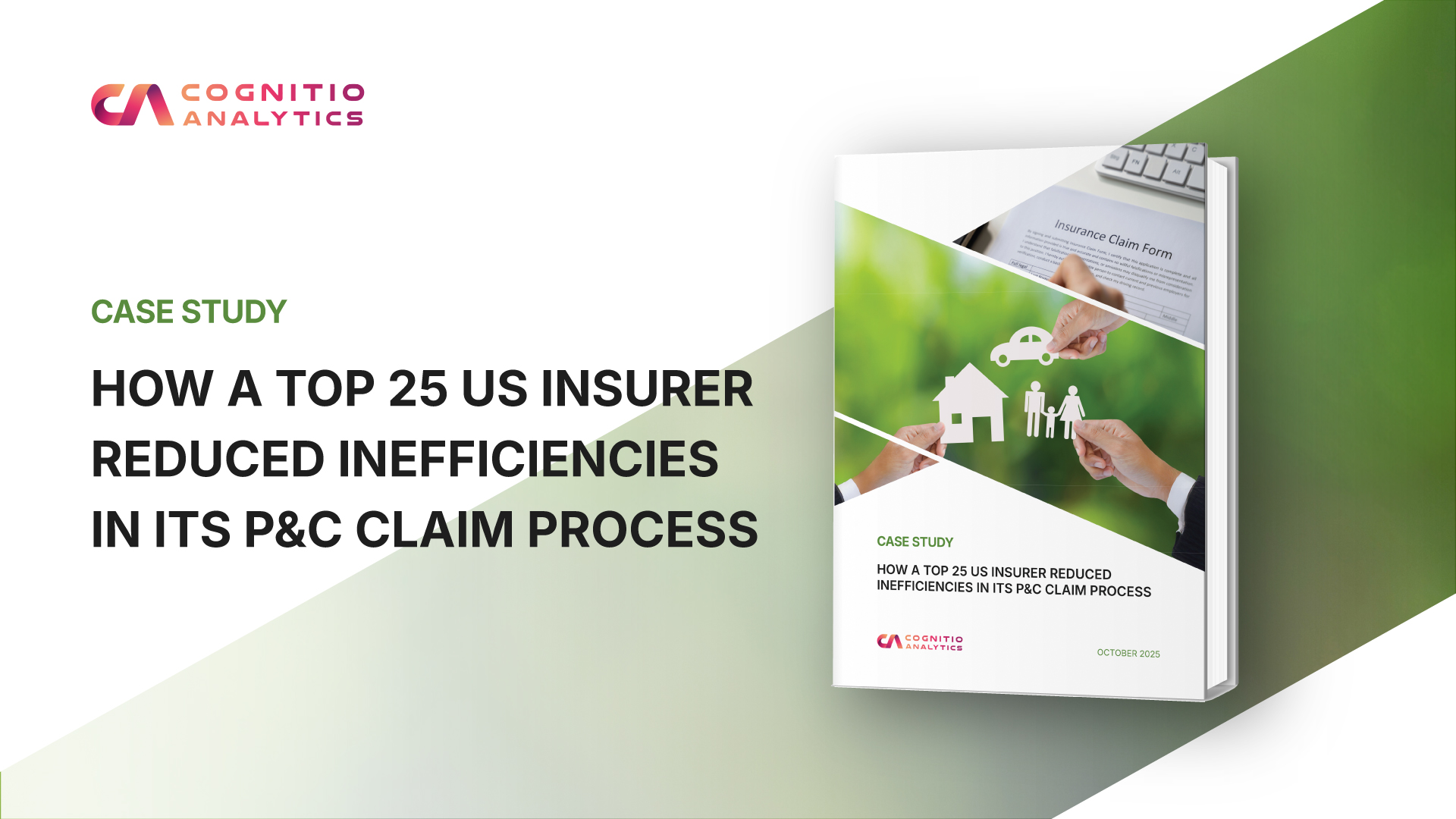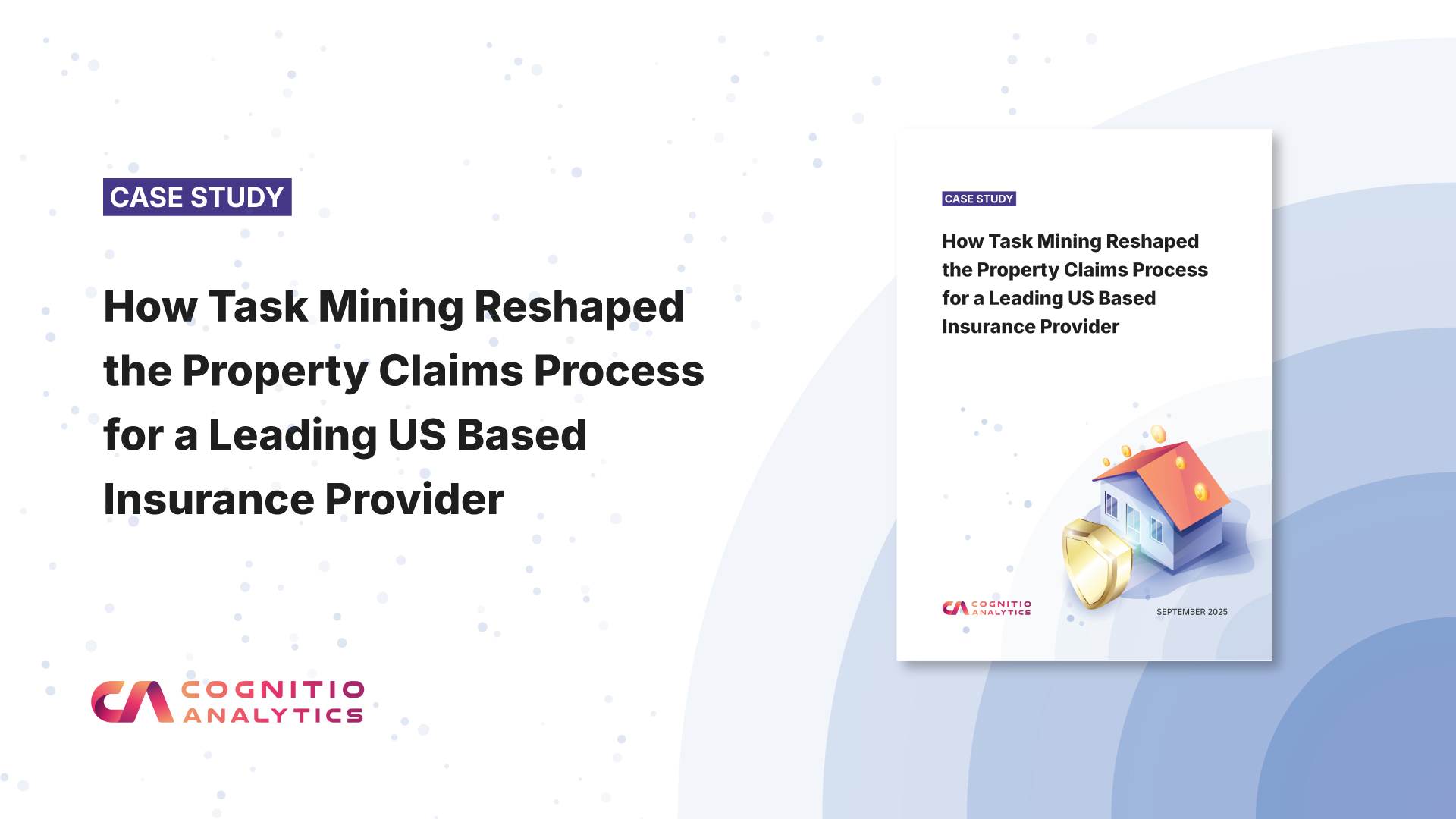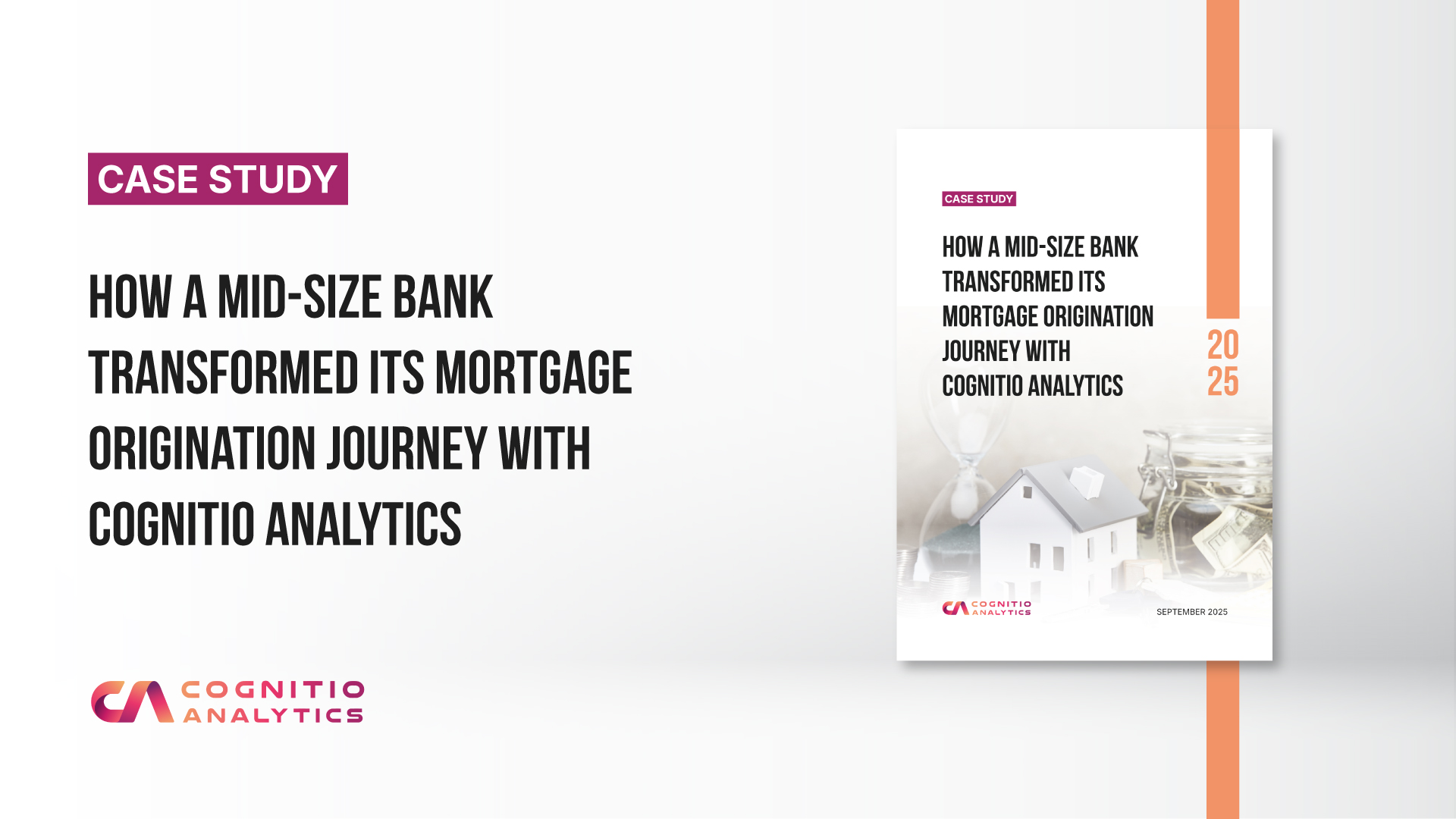
Overcoming Pitfalls: Navigating Common Challenges in Process and Task Mining
- Published Date: October 16, 2025
We’ve covered the immense power of process and task mining in previous articles, from mapping your processes to fueling intelligent automation. However, the journey from data to insight is not without its hurdles. Many organizations face common pitfalls that can derail a process intelligence initiative before it ever delivers value. For Cognitio Analytics, guiding our clients to successfully navigate these challenges is a core part of our methodology.
This blog post will address the most frequent process intelligence challenges and offer actionable strategies to overcome them, ensuring your project succeeds.
Challenge 1: The Data Dilemma (Quality & Availability)
The foundation of any process mining or task mining initiative is data. If the data is flawed, so are the insights.
- Data Quality: Event logs from IT systems can be incomplete, inconsistent, or lack a unique case ID, making it impossible to accurately reconstruct a process. Similarly, task mining can be hampered by noisy or irrelevant desktop activity.
- Data Availability: In many organizations, the necessary data is scattered across disparate, siloed systems. Extracting and unifying this information can be a significant technical hurdle.
How to Navigate:
Begin with a meticulous data audit. Before selecting a tool, work with your IT and business teams to identify where process data resides and assess its quality. For process mining, ensure your event logs contain the three essential components: a case ID, an activity, and a timestamp. For task mining, define a clear scope of what desktop activities are relevant to the process you’re analyzing. This upfront work is a crucial process intelligence best practice.
Challenge 2: Privacy and Security Concerns
This is arguably the most sensitive of all process intelligence challenges. Capturing granular user activity in task mining can raise significant privacy concerns among employees and management. Likewise, process mining can expose sensitive business information or if not handled carefully.
How to Navigate:
- Transparency and Communication: Be transparent with employees about what data is being collected, why it’s being collected, and how it will be used. Emphasize that the goal is to optimize processes, not to monitor individual employee performance.
- Anonymization: Implement robust data anonymization and pseudonymization techniques. For task mining, blur or redact sensitive information on screens and avoid collecting personal data (through whitelisting). Ensure all collected data is stored securely and access is strictly controlled. Adhering to regulations like GDPR is non-negotiable.
Challenge 3: Stakeholder Alignment & Change Management
Technology is only half the battle. Without buy-in from key stakeholders, any process intelligence project is at risk.
- Lack of Business Context: IT teams may struggle to interpret the raw data without sufficient business context, leading to inaccurate insights.
- Fear of the Unknown: Employees and managers may resist the initiative out of fear that it will lead to job cuts or harsh performance monitoring. This is a common implementation risk.
How to Navigate:
- Cross-Functional Team: Form a project team that includes both IT and business subject matter experts from the very beginning. This ensures the analysis is grounded in real-world context and builds trust across the organization.
- Focus on Value: Frame the initiative around its positive outcomes; eliminating frustrating manual tasks, improving customer experience, and allowing teams to focus on more strategic work. Highlight how process intelligence can support continuous improvement, rather than being a one-off audit.

Transformation is never one-size-fits-all.
Our free workshop will walk you through Cognitio’s process intelligence methodology—combining process mining, task mining, and advanced analytics—to uncover what approach works best for your business.
Challenge 4: Tool Limitations and Tool-Lock
With a growing number of process mining and task mining platforms, choosing the right solution can be overwhelming. Some tools may be excellent at one task but weak at another. Also, getting locked into a single vendor can potentially limit future flexibility.
How to Navigate:
As a tool-agnostic firm, Cognitio Analytics believes in finding the right solution for the client, not forcing a client to fit a pre-selected tool.
- Start with the Problem, Not the Tool: Define your business problem and data landscape first. Are you solving for a high-level supply chain bottleneck or a specific manual data entry issue? Your problem should dictate the tool.
- Proof of Value (PoV): Before making a large-scale investment, conduct a small-scale PoV. This allows you to test the tool’s capabilities with your own data and assess its value without committing significant resources.








Tool-Agnostic Expertise – Focused on Consulting Value
Not Just the Right Tool: The Right Approach
Whether you use Celonis, QPR, UiPath, Signavio, IBM, or something else entirely, we meet you where you are.
As a tool-agnostic partner, we help you get more value from your current ecosystem or guide you in choosing the best-fit platform for your transformation goals. It’s never one-size-fits-all, it’s about what works for you.
Challenge 5: The Need for Specialized Expertise
While process intelligence tools make data visualization easy, interpreting the results and designing a solution requires a specific skill set. Without it, you risk misinterpreting the data and implementing ineffective changes.
How to Navigate:
Process intelligence is not a “plug and play” solution. To derive meaningful conclusions and design effective solutions, you need expertise in:
- Process Management Methodologies: A solid understanding of principles from frameworks like Lean Six Sigma is essential to diagnose root causes and structure a valid improvement plan. These methodologies provide the analytical lens to translate data into actionable insights.
- Business Process Subject Matter Expertise: Interpreting a process map requires deep business context. Only a subject matter expert can identify why a particular process variant exists or if a bottleneck is due to a technical issue or a policy limitation.
- State-of-the-Art Technology: The person or team designing the solution must be knowledgeable about current and emerging technologies. They need to know when the right solution is a simple process redesign versus a sophisticated intelligent automation solution (like RPA or Agentic AI), ensuring you don’t over-engineer a simple problem.
By proactively addressing these challenges, organizations can transform their process intelligence initiatives from a technical project into a strategic business enabler. It’s about combining the right technology with a smart, people-centric strategy to turn data into a powerful engine for transformation.
Explore the Latest
Discover trends and strategies shaping smarter, faster business processes.



